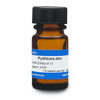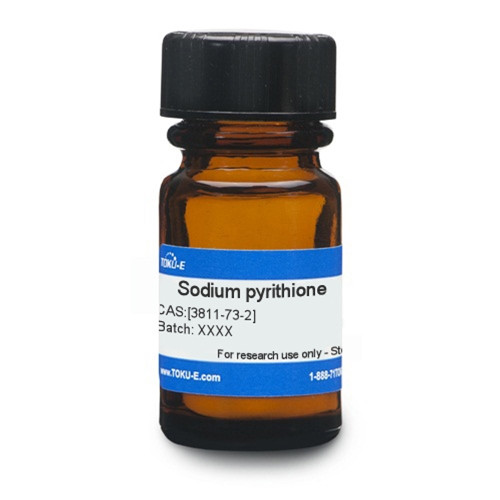Pyrithione Zinc is a metal complex with fungistatic and bacteriostatic properties. Pyrithione Zinc is commonly used against the bacteria causing dandruff and seborrhoea.
| Mechanism of Action | Pyrithione Zinc causes a buildup of intracellular copper which damages iron-sulfur proteins. |
| Molecular Formula | C10H8N2O2S2Zn |
| Microbiology Applications | A simple, quantitative colorimetric spectrophotometric assay for the quantification of the Pyrithiones based on the chelation of copper (II) ions by the biocide Pyrithione Sodium was developed to determine the biocide distribution in E. coli and P. aeruginosa (Dinning et al 1998). |
| References |
Dinning AJ, Al-ADham ISI, Eastwood IM, Austin P and Collier PJ (1998) Pyrithione biocides as inhibitors of bacterial ATP synthesis. J. Appl. Microbiol. 85:141-146 Dinning AJ, al-Adham IS, Austin P, Collier PJ (1998) A novel assay for the distribution of Pyrithione biocides in bacterial cells. Lett. Appl. Microbiol. 27(1):1-4 PMID: 9722990 Dinning AJ, Al-Adham IS, Eastwood IM, Austin P, Collier PJ (1998) Pyrithione biocides as inhibitors of bacterial ATP synthesis. J. Appl. Microbiol. 85(1):141-146 PMID 9721664 Khattar MM, Salt WG and Stretton JR (1988) The influence of Pyrithione on the growth of microorganisms. J. Appl. Bacteriol. 64:265–272 |




